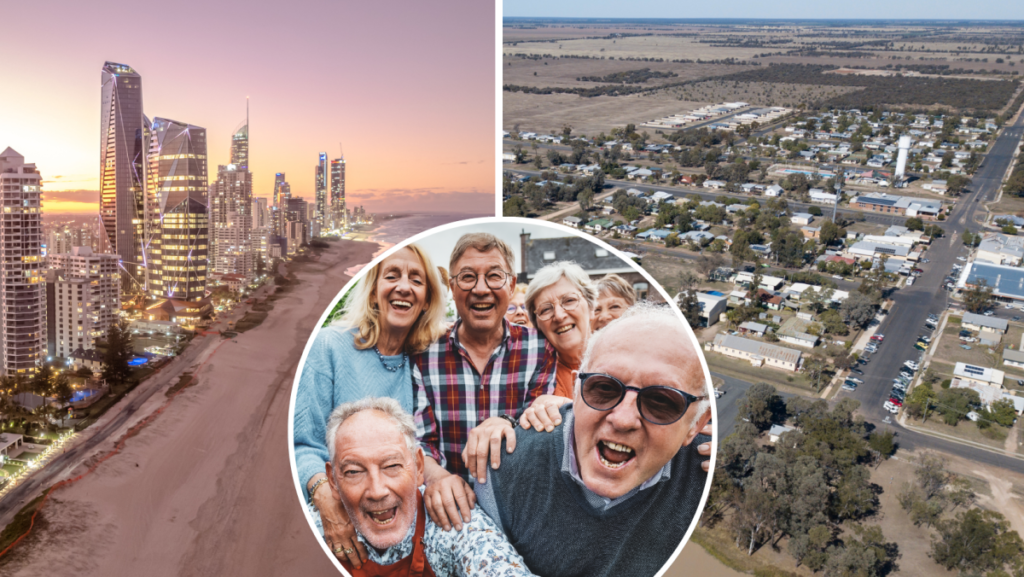Older Australians have been able to avoid the burden of rising interest rates by buying properties with cash, with more than a quarter of all residential homes on the east coast bought without a mortgage last year.
Property Exchange Australia (PEXA) chief economist Julie Toth told Yahoo Finance that, while the phenomenon among Baby Boomers could be “exacerbating the existing intergenerational wealth divide” in Australia’s housing-affordability crisis, it also helped prop up the market.
“While rising interest rates have contributed to cost-of-living impacts across most types of households, the growth of this cash-buyer cohort … suggests the rate rises of the past year have not affected the ability of these buyers to purchase property to the same extent as buyers who require a mortgage,” Toth said.
What do you think about cash buying? Contact belinda.grantgeary@yahooinc.com
Cash buyers are more likely to be older and retired, but the demographic can differ when comparing those who purchase in regional areas to inner-city buyers.
“Regional cash property purchases are likely being driven by retirees and downsizers looking for a ‘tree change’ or ‘sea change’, which has become a popular trend in recent years,” Toth told Yahoo Finance.
RELATED
“In contrast, the inner-urban cash buyers are likely a combination of affluent owner-occupiers who are relocating, plus domestic and international investors buying rental properties.”
This comes at a time when millions of Australians are under mortgage stress, with more owner-occupiers than investors likely to have a loan in arrears, according to the Australian Prudential Regulation Authority.
Cash-cohort avoid grips of RBA crackdown
Mortgage broker of over 20 years Rebecca Jarrett-Dalton said the cash-buying cohort had a trickle-down effect within wealthier families, which could widen the gap between the haves and have-nots.
“We are seeing people future-gift their inheritances, so they might give their kids $200,000 if they’ve sold up and bought something cheaper, then the children are using that to buy as well,” she told Yahoo Finance.
“That’s not going to buy the whole thing, but it helps.”
Follow us on Facebook, LinkedIn, Instagram and X (Twitter) + subscribe to our newsletter.
She said an agent had reported 90 per cent cash sales in the Blue Mountains.
“It’s a fascinating phenomenon,” Jarrett-Dalton added.
The Reserve Bank’s 13 cash-rate rises have put pressure on many Australian households, but the “cash-cohort” could be benefiting two-fold because they avoid mortgage repayments and boost their savings.
“If they have interest-earning savings, then they may even have benefited from rising interest rates,” Toth said.
Where are Aussies buying homes with cash?
The research found 28.5 per cent of properties bought in 2023 across New South Wales, Queensland and Victoria required no mortgage – up $1.9 billion from the previous year.
New South Wales recorded the highest value of cash purchases at $54.9 billion, or 27.7 per cent of all total residential purchases. Marsden Park had the highest cash spend, while the biggest portion of cash buyers were on the Mid-North Coast in Gloucester.
Looking wider, Queensland and Victoria’s spend of $39.4 billion and $35.3 billion, respectively, put them in second and third, with 29.6 per cent and 25.2 per cent of sales.
Surfers Paradise had the biggest cash spend in the country, coming in at $1.4 billion, followed by Melbourne ($1.3 billion) where more than half of all purchases were in cash, according to PEXA’s research.
The rural town of Tara, in Queensland’s Western Downs region, represented the biggest percentage of cash buyers in Australia, with 86 per cent of all purchases mortgage-free.
Toth said the trend of cash buyers was likely to increase as the population aged.
“Over the three to four years that we have visibility of this data, the cash-purchase group has persistently been at least 25 per cent across the three major markets,” she said.
“It does seem to be a structural feature that we can expect to see continue forward.”

